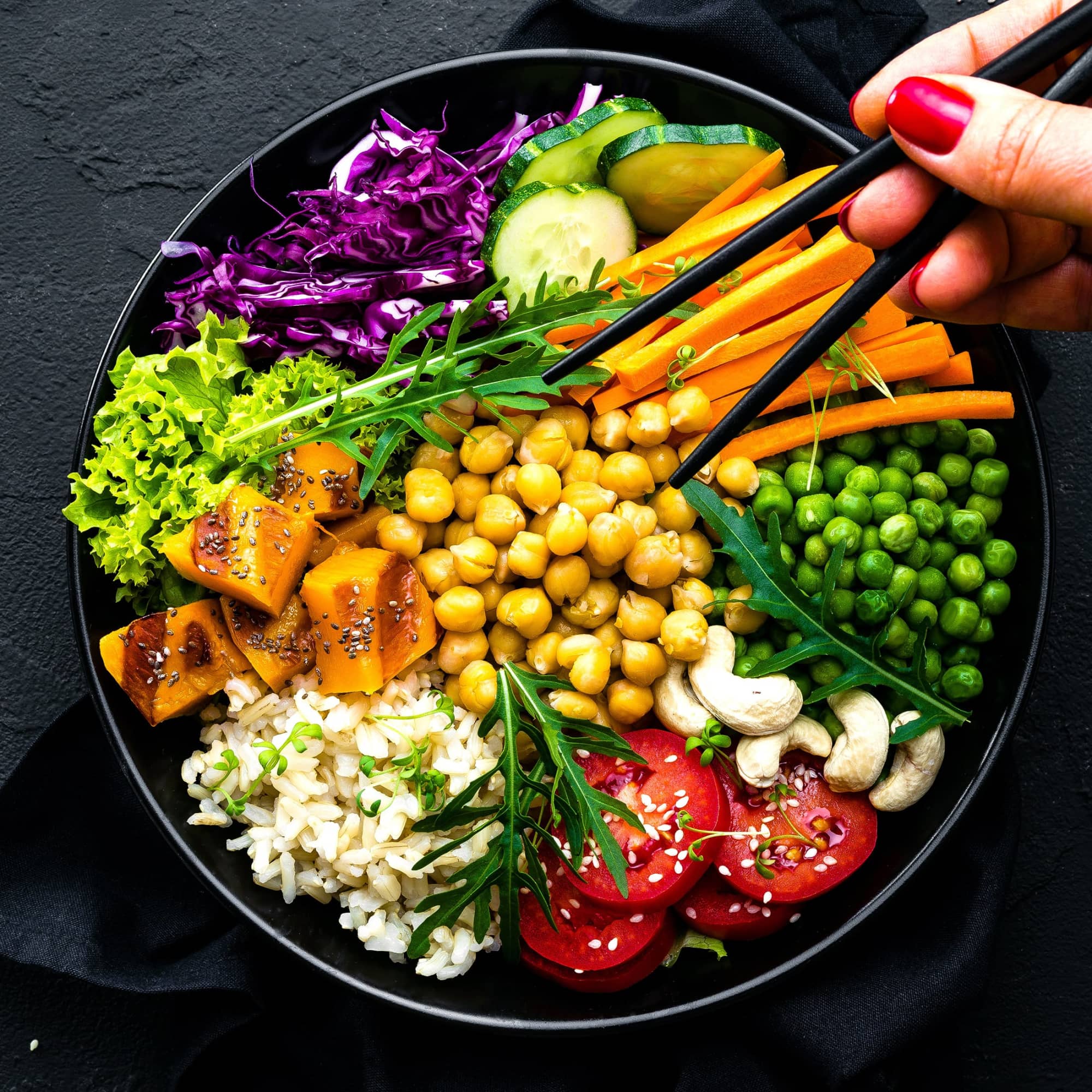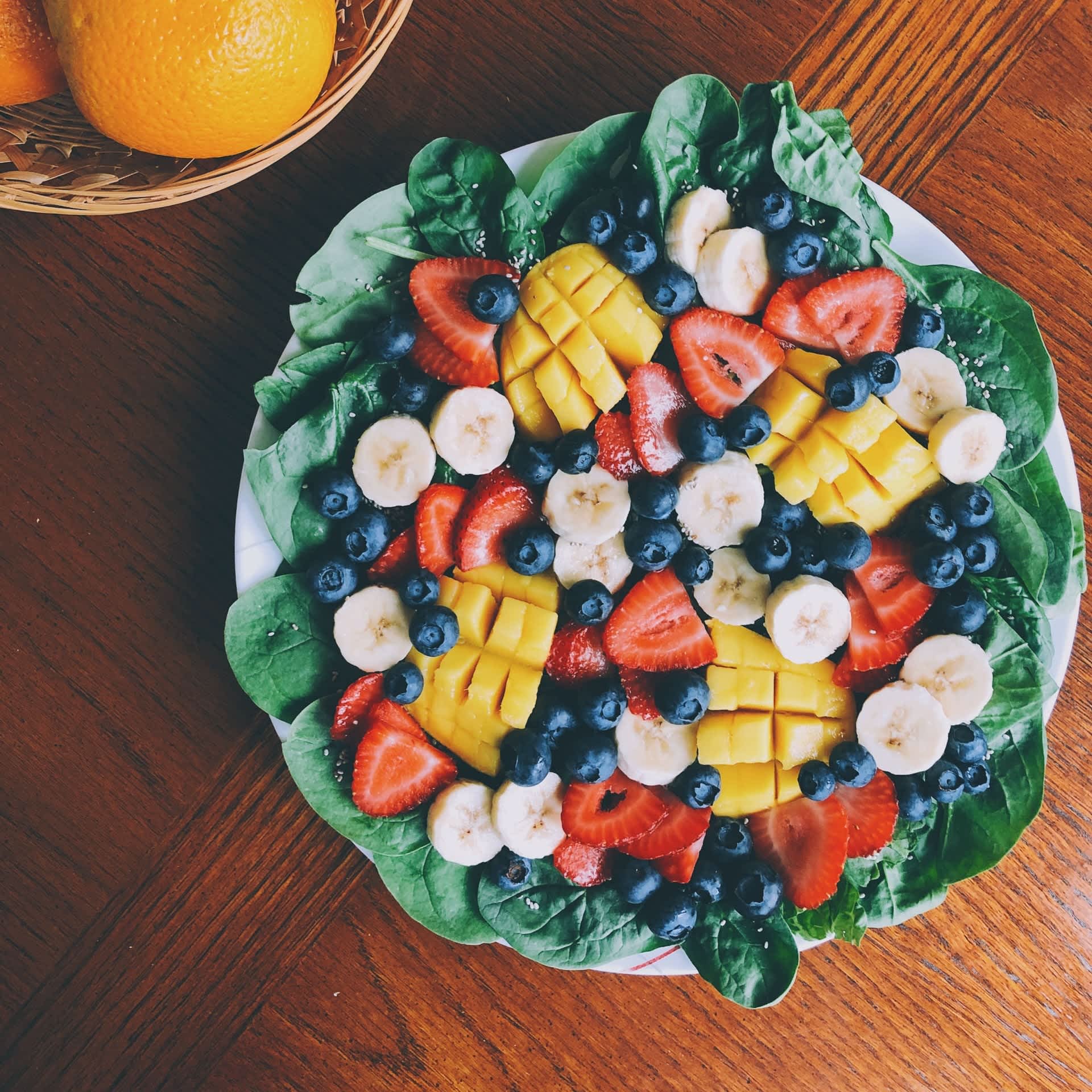
- POPSUGAR Australia
- Fitness
- If You Want to Lose Weight, Study Says Low-Fat Vegan is More Effective Than Mediterranean Diet
If You Want to Lose Weight, Study Says Low-Fat Vegan is More Effective Than Mediterranean Diet

If losing weight is one of your 2021 goals, you may want to consider a low-fat vegan diet. A new study published on Feb. 5 by the Physicians Committee for Responsible Medicine in the Journal of the American College of Nutrition showed that eating a low-fat vegan diet was actually more effective for weight loss than the Mediterranean diet, which is typically ranked the best diet for weight loss. Are you surprised?
The two diets were compared in a 36-week trial. For 16 weeks, half of the participants were randomly assigned to a low-fat vegan diet, eating vegetables, fruits, whole grains, and legumes, while limiting plant fats like oil, avocado, nuts, seeds, and coconut. The other half followed the Mediterranean diet, which is also full of veggies, fruits, and whole grains, but includes olive oil and a moderate amount of fish and chicken. Neither group had calorie restrictions.
After the 16 weeks, the participants returned to their original diets for four weeks, then followed the opposite diet for another 16 weeks.
The study showed that eating a low-fat vegan diet had better results for weight loss, cholesterol levels, and improved body composition and insulin sensitivity. Participants following the Mediterranean diet lost no weight, but those following a low-fat vegan diet lost an average of 13.2 pounds, including an average of 7.5 pounds of fat.
While many experts think of the Mediterranean diet as one of the best ways to lose weight, the study’s author, Neal Barnard, MD, president of the Physicians Committee, said the diet’s inclusion of fatty fish, dairy products, and oils seems to be the reason none of the participants lost weight on it.
I reached out to registered dietitian Susan Macfarlane, MScA, to get her opinion on this study and she explained to POPSUGAR, “In this study, the weight loss can be attributed to a calorie reduction.” The participants eating the low-fat vegan diet reported that they were naturally eating 500 fewer calories, but that their calorie intake didn’t change while eating the Mediterranean diet.
Eating veggies, fruits, whole grains, and legumes that are naturally lower in calories than foods that contain fat allowed the participants to reduce their calorie intake without reducing the volume of food they were eating, Macfarlane said. These types of foods also have a high water and fiber content, which enhances their satiety, she added, so you feel full eating fewer calories. Eating a low-fat vegan diet means you’re also not eating high-calorie processed foods, Macfarlane said, which are easy to overeat, leading to weight gain.
To add my personal take, I started following a low-fat, high-carb vegan diet in July 2020. I was already not eating meat or dairy, but was eating eggs, oil, avocado, coconut, and tons of seeds, and nuts and nut butters. Switching to a low-fat vegan diet offered me so many benefits. As long as I was eating enough carbs from starches, not consuming sugar or processed foods or flours, I had more energy for my workouts, got leaner, and once I got used to all the fiber I was eating from beans and non-starchy veggies, my digestion had significantly improved.
It’s important to emphasize that this study is referring to a low-fat vegan diet, which means your diet is 10 to 15 percent fats – not zero fat. Registered dietitian Whitney English Tabaie, MS, warned that consuming zero fats could backfire, since fats offer a feeling of satiety. She said in a previous interview, “Someone could end up overeating later to make up for their low-fat meals,” which would then lead to weight gain. Registered dietitian Sarah Rueven, MS, CDN from Rooted Wellness added that not eating enough fat could lead to nutrient deficiencies from not getting enough fat-soluble vitamins (A, D, E, and K).
The bottom line is eating a more whole, plant-based diet is a healthy way to eat, since it encourages a person to eat vitamin- and fibre-rich fruits, veggies, and whole grains. But Tabaie said that “eating a balanced diet with moderate amounts of protein, fat, and complex carbohydrates at each meals” is essential for optimal health. For a general macro breakdown for meals, registered dietitian Leslie Langevin, MS, author of The Anti-Inflammatory Kitchen Cookbook recommends dividing your plate into half plate low-carb veggies, one-quarter plate protein, and one-quarter plate carbs plus fat.


